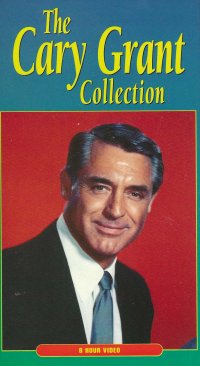 Gentle reader, over Memorial Day weekend (that long ago, sadly–I am far behind on my movie reports and not so much my book reports), I watched this single videocassette with three Cary Grant films which I bought in April. I’d had memories of the three-VHS set that I bought in 2008–and when I tried to watch it shortly thereafter, I encountered a problem with one of the videocassettes not tracking well at all, so I left it in my unwatched video cabinet for the last fifteen years.
Gentle reader, over Memorial Day weekend (that long ago, sadly–I am far behind on my movie reports and not so much my book reports), I watched this single videocassette with three Cary Grant films which I bought in April. I’d had memories of the three-VHS set that I bought in 2008–and when I tried to watch it shortly thereafter, I encountered a problem with one of the videocassettes not tracking well at all, so I left it in my unwatched video cabinet for the last fifteen years.
So I was a little surprised that I had already seen the two first two movies. I bought Charade on a separate videocassette and watched it in 2015 (almost closer to 2008 than now). I’m not sure when I would have seen Penny Serenade unless either that videocassette of the 3-pack worked or I also bought and watched it independently in the interim. But I had never heard of the third film, Amazing Adventure also known as The Amazing Quest of Ernest Bliss.
They go in reverse chronological order: Charade is from 1963, the height of Grant’s older charmer era. The Penny Serenade comes from 1941, and Amazing Adventure is a British film from 1936 in a trimmed American release in 1937.
Charade finds an ex-pat American (Audrey Hepburn) planning to divorce her husband. But returning from holiday, she finds her Paris apartment bare and her husband has been murdered leaving the country. A helpful American, played by Cary Grant, lends support. Several old squad mates (including James Coburn and George Kennedy) of her husband’s show up looking for stolen war loot that they presume she has. A helpful American agent, played by Walter Matthau, tells her to look for the money and turn it over to him. And she learns that Mister Joshua (Grant’s character, not Gary Busey’s) is working with the squad mates. Maybe.
It has twists and turns, set pieces and a lot of early 60s Paris, including some scenes on the Seine filmed in the same locations as scenes from Frantic two decades later. And a happy ending between the older Grant and the younger Hepburn–whose age difference is a bit of a running joke through the film, as Grant is 59 and Hepburn is 33 in the film. To be honest, although she was the original manic pixie girlfriend archetype (well, original to those of us of a certain age who did not get into silent films until later), Hepburn really doesn’t do that much for me.
I have the soundtrack by Henry Mancini on LP, and although I have seen the film once before as I mentioned, I am more familiar with the music as I play the record more often than I’ve watched the movie.
Penny Serenade tells the story of a couple, Cary Grant and Irene Dunne, who marry when Grant’s journalist gets posted to Japan. They enjoy life in pre-World War II Japan (the film came out in April 1941, months before Japan attacked Pearl Harbor), living a bit beyond their means, when the wife becomes pregnant. During the 1923 Tokyo earthquake, though, she loses the baby and through cinemagic cannot have another. When they return to the states, he buys a newspaper in California and with the help of Applejack, a friend from New York, they try to make a go of it. The core of the movie is their adoption of a little infant girl with the comic movements of their first time with a baby, challenges in bathing the baby, and so on. Applejack comes from a large family, and in addition to being able to diagnose and correct printing presses with a whack, he can show them how to handle a baby. As she grows, they enjoy moments with her, including her participation in a Christmas program.
The story is told in flashback as the wife spins various records triggering these memories–it turns out that after the Christmas program sometime, the child took sick and died suddenly–this is revealed in a handwritten letter to the woman at the adoption organization, and important points should not be rendered in handwriting, Hollywood, as when viewed eighty years later a cheap, copyright-free transfer to a videocassette watched 35 years later, viewers will not be able to read the letter blurring upward on the screen. At any rate, the wife is leaving the husband who has become depressed and detached, but as Applejack readies to take her to the station, the woman at the adoption agency calls with another child for adoption, and the couple reconciles as the credits roll.
The ending of it was rather tacked-on, but I guess that was the whole reason for the frame story and perhaps the promotion of the records featured. But it ultimately was unsatisfying. Grant got one of his Academy Award nominations for the role, but I am not so sold on it.
Amazing Adventure finds Cary Grant playing a well-to-do bachelor who is challenged to live life as a commoner for a year without touching his money. He meets a young commoner, played by Mary Brian, and falls in love, holds a number of jobs, and learns some life lessons. It was not a particularly compelling film, but I’ve seen it now.
Now that I am getting into the older Cary Grant stage of my life, I should perhaps re-channel my inner Cary Grant. I have been dressing in jeans and t-shirts a pile lately (but collared shirts when leaving the house) because I’ve not been going many places these days. Perhaps I should spring for a couple more dress slacks and get back to dressing dapper even in my own home. Because that’s how men, at least men in the cinema in the first half of the last century, did it.



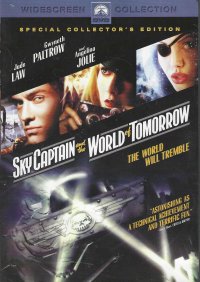 At Rob K.’s
At Rob K.’s  I don’t know where I bought this collection, but it looks to be fifteen films from the Blaxploitation era of the 1970s. And, to be honest, they’re not the best of them–one bets you could sell Shaft, Across 110th Street, Foxy Brown, Superfly, and a handful of other films singly–heck, I bought Get Christie Love! on a dollar DVD close to twenty years ago. But, you know, as I got into them, I discovered that they’re not so much Blaxploitation films as films with black casts.
I don’t know where I bought this collection, but it looks to be fifteen films from the Blaxploitation era of the 1970s. And, to be honest, they’re not the best of them–one bets you could sell Shaft, Across 110th Street, Foxy Brown, Superfly, and a handful of other films singly–heck, I bought Get Christie Love! on a dollar DVD close to twenty years ago. But, you know, as I got into them, I discovered that they’re not so much Blaxploitation films as films with black casts.
 This is the Adam Sandler remake of the Burt Reynolds film
This is the Adam Sandler remake of the Burt Reynolds film  I picked this film up
I picked this film up 
 Gentle reader, over Memorial Day weekend (that long ago, sadly–I am far behind on my movie reports and not so much my book reports), I watched this single videocassette with three Cary Grant films which I bought
Gentle reader, over Memorial Day weekend (that long ago, sadly–I am far behind on my movie reports and not so much my book reports), I watched this single videocassette with three Cary Grant films which I bought 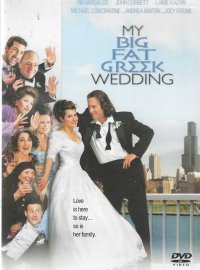 I bought this film at the Friends of the Springfield-Greene County Library book sale
I bought this film at the Friends of the Springfield-Greene County Library book sale 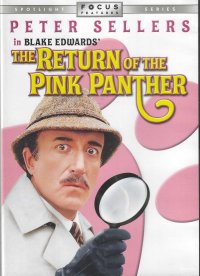 I kind of remember the Pink Panther movies from my younger years. I’d like to say that I saw one of them at the drive-in with my parents. We went a couple of times when I was younger, sometimes my parents, my brother, and I, and at least once with my mother and her friend the country singer and her two boys. Enough to think we went all the time, kind of like how a handful of Christmases and holidays from my very younger years set the pattern. But going to the drive-in in the late 1970s was already trending toward an anachronism. I’ve thought about taking my boys down to Aurora for the drive-in there (and mentioned it to my beautiful wife while talking about this film, triggering Facebook ads for that very drive-in). But I am sure my boys would find the experience underwhelming. I also think that I saw parts of a Pink Panther film when we later at the home of the country singer, her husband the wedding singer, and their two boys, either on a sleepover or in the interim month between exiting the projects and decamping for Missouri at the end of the school year–I remember the bit about Inspector Clouseau’s butler attacking him. I also remember that Inspector Clouseau was a bit of a, what, trope? when I was younger. You’d say someone was a Clouseau who was stating the obvious or was making a bad deduction. And look at his attire on the cover: He was the inspiration for Inspector Gadget, ainna?
I kind of remember the Pink Panther movies from my younger years. I’d like to say that I saw one of them at the drive-in with my parents. We went a couple of times when I was younger, sometimes my parents, my brother, and I, and at least once with my mother and her friend the country singer and her two boys. Enough to think we went all the time, kind of like how a handful of Christmases and holidays from my very younger years set the pattern. But going to the drive-in in the late 1970s was already trending toward an anachronism. I’ve thought about taking my boys down to Aurora for the drive-in there (and mentioned it to my beautiful wife while talking about this film, triggering Facebook ads for that very drive-in). But I am sure my boys would find the experience underwhelming. I also think that I saw parts of a Pink Panther film when we later at the home of the country singer, her husband the wedding singer, and their two boys, either on a sleepover or in the interim month between exiting the projects and decamping for Missouri at the end of the school year–I remember the bit about Inspector Clouseau’s butler attacking him. I also remember that Inspector Clouseau was a bit of a, what, trope? when I was younger. You’d say someone was a Clouseau who was stating the obvious or was making a bad deduction. And look at his attire on the cover: He was the inspiration for Inspector Gadget, ainna?

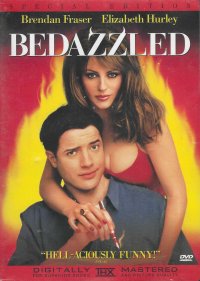 I saw this film in the theater, without Mike as I
I saw this film in the theater, without Mike as I 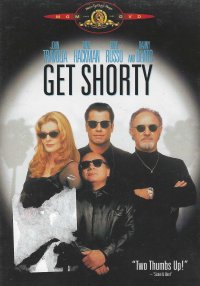 Ah, gentle reader, this film provided a bit of mental relief for me in the real world. When I proposed watching this film, my beautiful wife said to me, “We saw that in the theater.” To which I responded that I had never seen the movie. Given that the film came out two years before we met, we did not see it in the theater. I was pleased to see that she, too, pencils me into some of her memories from that brief interlude between childhood and marriage. I myself have on several occasions said something like, “Remember when we…” only to discover she was not a part of the we I was thinking of. I thought perhaps I alone was muddy on that brief interlude between summer 1994 and early 1997, the interregnum between college and being a couple, which were very busy and whose memories I sometimes retcon my wife into.
Ah, gentle reader, this film provided a bit of mental relief for me in the real world. When I proposed watching this film, my beautiful wife said to me, “We saw that in the theater.” To which I responded that I had never seen the movie. Given that the film came out two years before we met, we did not see it in the theater. I was pleased to see that she, too, pencils me into some of her memories from that brief interlude between childhood and marriage. I myself have on several occasions said something like, “Remember when we…” only to discover she was not a part of the we I was thinking of. I thought perhaps I alone was muddy on that brief interlude between summer 1994 and early 1997, the interregnum between college and being a couple, which were very busy and whose memories I sometimes retcon my wife into.